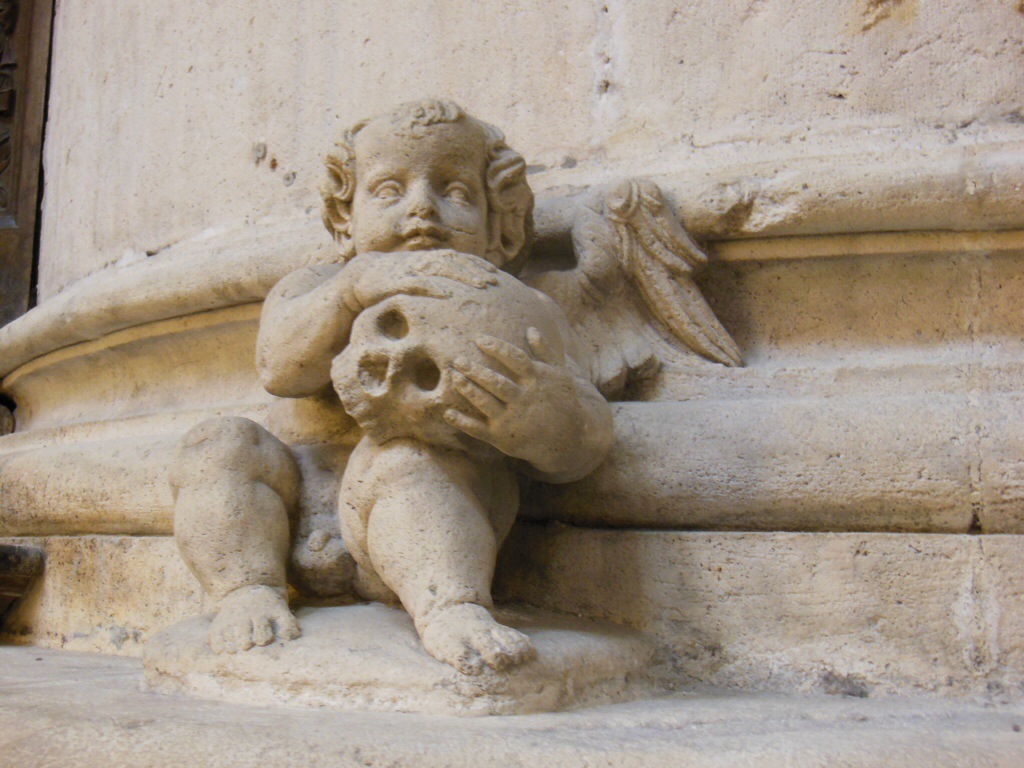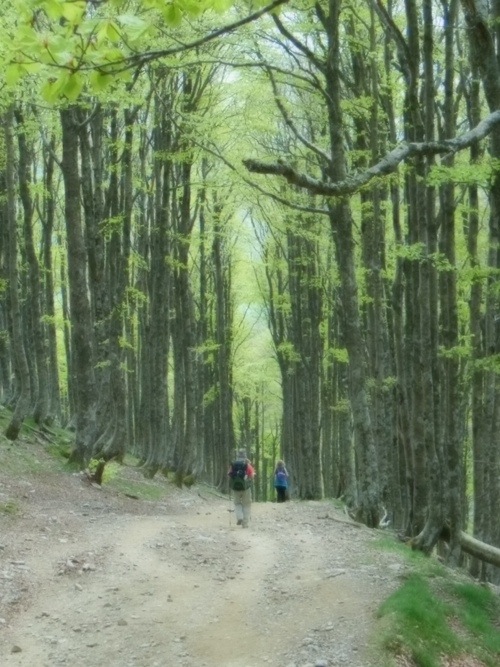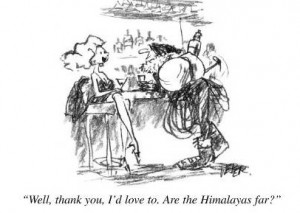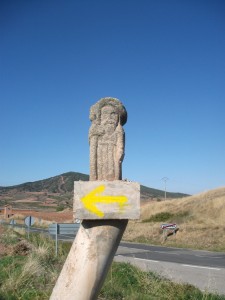We are in Burgos. Today is day 14 of our Camino de Santiago walk. The photo above, of a sweet little angel cradling a skull, is from the nave of Burgos Cathedral. It reflects how I feel perfectly.
The Camino is so much harder than I expected. I have been tempted to bail. Then, as I walk, I reflect on the hard things I have done in my life, and how glad I was and am that I did them. These hard things include being married, being a parent, learning to teach middle school, writing a thesis, moving… I’m not saying that just because something is hard it’s worth doing. Sometimes the right choice IS to walk away.
A few days ago I was sharing foot pain stories with a pilgrim from Ireland.
Kieran’s words, “You’re a pilgrim, not a martyr,” have helped me, and a few others, on the Way. I’m not sure exactly what the difference is yet. In many ways I feel more muddled up by the Camino than clarified.
Here are a few things I DO know:
1. Don’t squat in nettles.
2. Rural Spain often smells like wood smoke and sheep dung, a surprisingly lovely combination.
3. It’s possible to feel profound intimacy with people I’ve only known for a day, and with whom I don’t share a language.
4. There are some really loud snorers in the world.
5. I will indeed be one of those people that get out the albergue door at 7:00, walk fifteen miles, check into the next albergue, shower and do hand washing, and be sitting in the “plaza mayor” drinking a well-earned beer by 3:00. I find this incredible.
6. Forty people sleeping in a room can be pretty cool.
7. Community alleviates physical pain. At least a little.
Tomorrow we walk onto the Meseta, Spain’s central plateau. It’s raining as I write. Thank you for your prayerful support and positive mojo. Ultreia!







